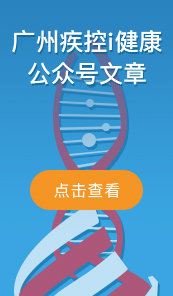刊發于《新英格蘭醫學期刊》(New England Journal of Medicine)2010年第362卷第22期的文章“CISH基因和傳染病易感性研究”發現:CISH基因與很多傳染性疾病有著密切關系。該基因發生變異后,會導致攜帶者更易感染結核病、瘧疾以及菌血病等傳染性疾病。研究人員最終確認了5組不同的CISH基因變異,其中一種變異(標記為-292)會使該變異基因攜帶者易感傳染病的風險增加18%。
以下為該文的原文摘要。
CISH and Susceptibility to Infectious Diseases
Chiea C. Khor, M.B., B.S., D.Phil., Fredrik O. Vannberg, D.Phil., Stephen J. Chapman, M.R.C.P., Haiyan Guo, Ph.D., Sunny H. Wong, M.B., Ch.B., Andrew J. Walley, D.Phil., Damjan Vukcevic, D.Phil., Anna Rautanen, Ph.D., Tara C. Mills, B.S., Kwok-Chiu Chang, M.B., B.S., Kai-Man Kam, M.B., B.S., Amelia C. Crampin, M.B., Ch.B., Bagrey Ngwira, M.B., B.S., Ph.D., Chi-Chiu Leung, M.B., Cheuk-Ming Tam, M.B., B.S., Chiu-Yeung Chan, Ph.D., Joseph J.Y. Sung, F.R.C.P., Ph.D., Wing-Wai Yew, M.B., F.C.C.P., Kai-Yee Toh, B.S., Stacey K.H. Tay, M.R.C.P.C.H., Dominic Kwiatkowski, M.D., Ph.D., Christian Lienhardt, M.D., Tran-Tinh Hien, M.D., Ph.D., Nicholas P. Day, B.M., B.Ch., Nobert Peshu, M.B., Ch.B., Kevin Marsh, F.R.C.P., Kathryn Maitland, M.D., Ph.D., J. Anthony Scott, F.R.C.P., Thomas N. Williams, M.D., Ph.D., James A. Berkley, F.R.C.P.C.H., Sian Floyd, M.Sc., Nelson L.S. Tang, F.R.C.P.A., Paul E.M. Fine, Ph.D., Denise L.M. Goh, M.R.C.P.C.H., and Adrian V.S. Hill, F.R.C.P., D.M.
Abstract
Background The interleukin-2–mediated immune response is critical for host defense against infectious pathogens. Cytokine-inducible SRC homology 2 (SH2) domain protein (CISH), a suppressor of cytokine signaling, controls interleukin-2 signaling.
Methods Using a case–control design, we tested for an association between CISH polymorphisms and susceptibility to major infectious diseases (bacteremia, tuberculosis, and severe malaria) in blood samples from 8402 persons in
Results We observed associations between variant alleles of multiple CISH polymorphisms and increased susceptibility to each infectious disease in each of the study populations. When all five single-nucleotide polymorphisms (SNPs) (at positions –639, –292, –163, +1320, and +3415 [all relative to CISH]) within the CISH-associated locus were considered together in a multiple-SNP score, we found an association between CISH genetic variants and susceptibility to bacteremia, malaria, and tuberculosis (P=3.8x10–11 for all comparisons), with –292 accounting for most of the association signal (P=4.58x10–7). Peripheral-blood mononuclear cells obtained from adult subjects carrying the –292 variant, as compared with wild-type cells, showed a muted response to the stimulation of interleukin-2 production — that is, 25 to 40% less CISH expression.
Conclusions Variants of CISH are associated with susceptibility to diseases caused by diverse infectious pathogens, suggesting that negative regulators of cytokine signaling have a role in immunity against various infectious diseases. The overall risk of one of these infectious diseases was increased by at least 18% among persons carrying the variant CISH alleles.
Source Information
Drs. Khor, Vannberg, Chapman, and Guo contributed equally to this article.
This article (10.1056/NEJMoa0905606) was published on May 19, 2010, at NEJM.org.
Address reprint requests to Dr. Khor at the Division for Infectious Diseases, Genome Institute of
(編輯:李澤榮)





